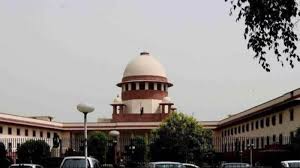Failure to exercise restraint on social media may invite state intervention: Supreme Court

New Delhi, July 15, 2025 – In a significant observation that could have far-reaching implications for digital freedom and responsibility, the Supreme Court of India has warned that individuals failing to exercise restraint on social media may face state intervention. The apex court emphasized the importance of responsible online conduct, particularly in an era where digital platforms play a dominant role in shaping public discourse.
“Freedom of Speech is Not Absolute”
A bench comprising Justice Sanjiv Khanna and Justice Dipankar Datta made the remarks during the hearing of a petition concerning online comments made by a government employee. While affirming the right to freedom of speech under Article 19(1)(a) of the Constitution, the court underlined that this right is subject to reasonable restrictions.
“While social media offers a space for free expression, it cannot be a license to malign, provoke, or create unrest. One must exercise restraint. Failing to do so may compel the state to step in,” the court observed.
The bench was deliberating on the conduct of a public servant who allegedly made objectionable remarks against the government and judiciary on platforms like Facebook and X (formerly Twitter). The court stated that government employees, in particular, are bound by service conduct rules that demand a certain level of decorum even outside their official duties.
Concerns Over Increasing Misuse of Social Media
The Supreme Court’s statement comes amid growing concerns over the rising misuse of social media platforms to spread misinformation, abuse, and hate speech. In recent years, India has seen multiple instances where online content has led to communal tension, reputational harm, and even threats to national security.
While the Centre and various state governments have introduced regulatory frameworks to combat fake news and online hate, critics argue that such regulations must not be used to stifle dissent or target free expression. The court’s warning appears to be a nuanced middle path — recognizing the rights of individuals while emphasizing accountability.
Balancing Freedom and Responsibility
Legal experts have largely welcomed the Supreme Court’s observations, calling them timely and necessary.
“The Supreme Court is reiterating a simple but powerful idea — with freedom comes responsibility,” said senior advocate Vrinda Grover. “Social media is a potent tool, but it is also a double-edged sword. The warning is not about censorship, but about ensuring dignity, respect, and legality in public discourse.”
However, some civil rights activists have expressed caution, urging that any form of state intervention should be proportionate and not arbitrary.
“We must ensure that this warning does not turn into a justification for suppressing dissent or criticism, especially from marginalized communities,” noted digital rights advocate Nikhil Pahwa.
Previous Judicial Precedents
This is not the first time the Indian judiciary has taken cognizance of the impact of digital platforms. In earlier cases, courts have addressed issues like online harassment, cyberbullying, and the liability of intermediaries like Facebook and WhatsApp.
In the Shreya Singhal v. Union of India (2015) judgment, the Supreme Court struck down Section 66A of the IT Act, which criminalized offensive online content, citing it as vague and unconstitutional. However, the court also stressed the importance of responsible online behavior.
The current remarks appear to be a continuation of the court’s attempt to strike a balance between digital liberty and accountability.
Implications for Government Employees and Common Citizens
The court’s observation specifically addressed the responsibilities of government officials on social media, but the implications extend to all citizens. With more than 800 million internet users in India and growing social media penetration, the potential for viral misinformation or defamatory content is higher than ever.
Public servants, who often hold influential positions, must be especially cautious. The Central Civil Services (Conduct) Rules already require government employees to refrain from making public statements that criticize the government or undermine national interest.
“You cannot hide behind free speech if your posts incite hatred, spread lies, or breach service conduct rules,” the bench noted during the hearing.
The Role of Social Media Platforms
The judgment also indirectly puts the spotlight on social media companies, urging them to take greater responsibility in moderating content. Platforms have frequently been accused of allowing hate speech and harmful content to proliferate in the name of engagement.
The government has already enacted the Information Technology (Intermediary Guidelines and Digital Media Ethics Code) Rules, 2021, which requires platforms to take down unlawful content within 36 hours of being notified. However, enforcement remains patchy.
Conclusion: A Timely Reminder in the Digital Age
The Supreme Court’s statement serves as a reminder for all users of social media — while the digital realm allows unprecedented freedom of expression, it also demands a higher degree of self-regulation and responsibility. As India continues to navigate the complex intersection of law, technology, and speech, the judiciary’s role in guiding digital ethics is becoming increasingly vital.
Whether the state will indeed step in more forcefully in the future depends not just on the actions of the government, but also on the conduct of its citizens online.






